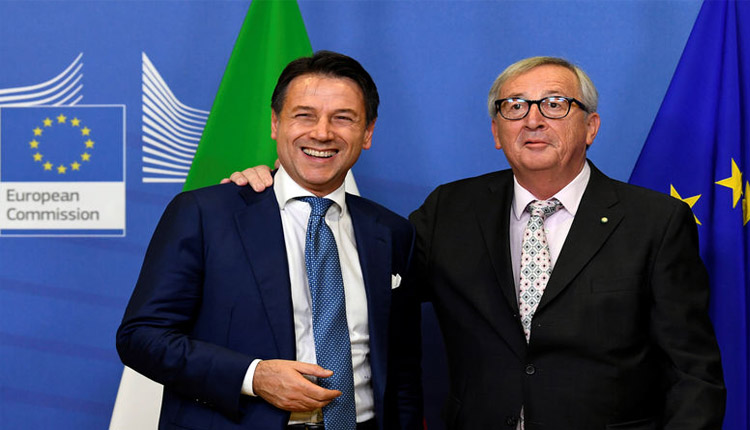European Commission President Jean-Claude Juncker met with Italy’s Prime Minister Giuseppe Conte to discuss the budget on the eve of an EU summit set to approve the terms of Britain’s withdrawal from the bloc.
“Work will continue in the following days to bring closer the respective points of view and seek a future-oriented solution,” a Commission spokeswoman said after the meeting.
The European Commission took the first step last Wednesday toward disciplining Italy over its expansionary 2019 budget after Rome refused to change it, raising the stakes in a dispute that has alarmed the whole euro zone and could eventually lead to fines.
Conte’s government wants to increase borrowing next year to deliver on election promises of lowering the pension age, providing a universal income and some tax cuts. It says the higher consumption will accelerate economic growth — an assumption the Commission does not share.
Italy already has the second highest debt to GDP ratio in Europe at 131 percent and other euro zone countries worry more borrowing could trigger another sovereign debt crisis like the one started by Greece in 2010 that nearly destroyed the euro.
Conte rejected that possibility.
“Italy has such strong fundamentals that you can’t compare it with Greece, you cannot talk about the risk of a Greek-style crisis,” he told reporters after the meeting.
He said discussions with the Commission would continue, but noted he offered no major changes to the budget.
“The meeting was not decisive. We need to continue to talk. I did not propose any change in the main reforms the government has included in its budget. We did not talk about the deficit target,” he said.
He said talks on the budget could continue with some of the other European leaders who will attend the summit on Sunday to approve the terms of the divorce between the EU and Britain.
Conte said he hoped the dialogue with the Commission would help calm financial markets and bring down the spread between Italian bonds and their German equivalents, which has widened well above 300 bps on concern over the budget.
He also said the discussions could help Rome avoid further disciplinary steps from the Commission under the EU’s excessive deficit procedure that could end in fines.
source: Reuters


